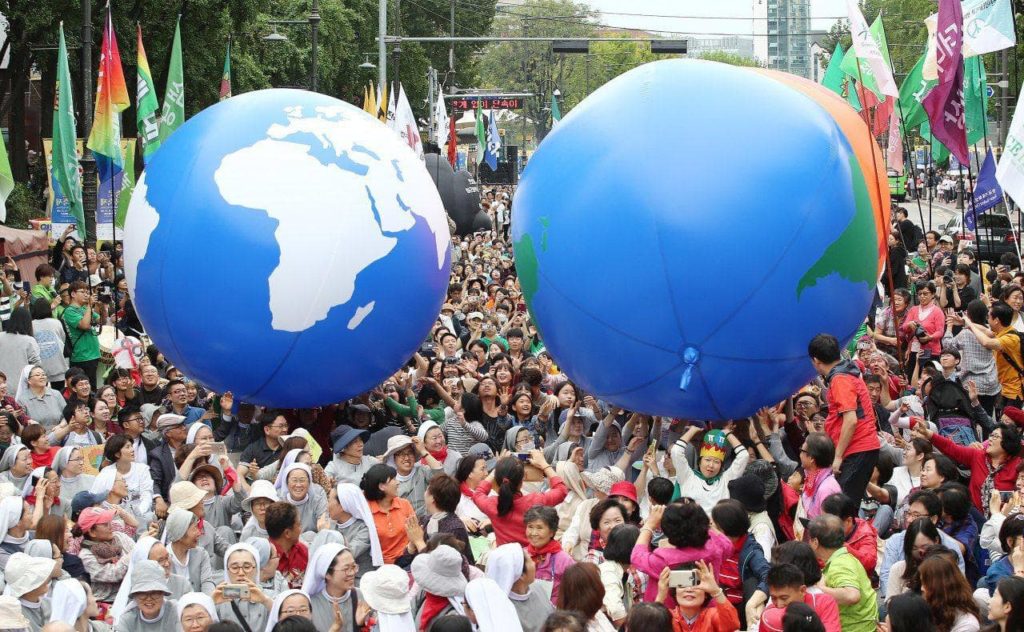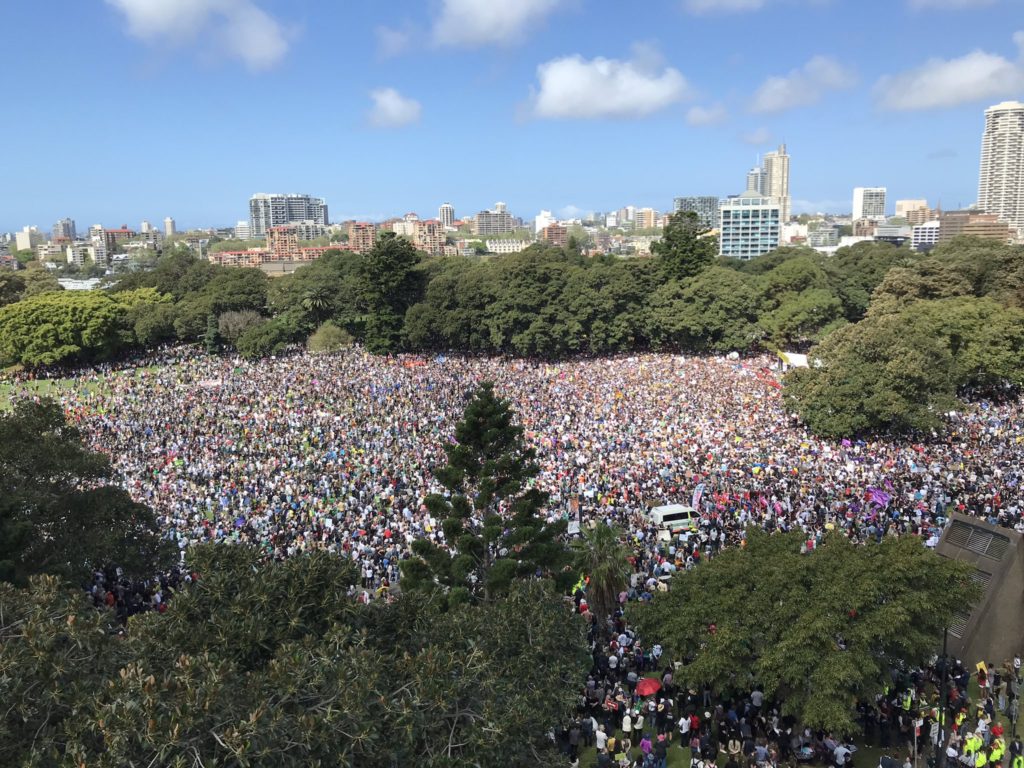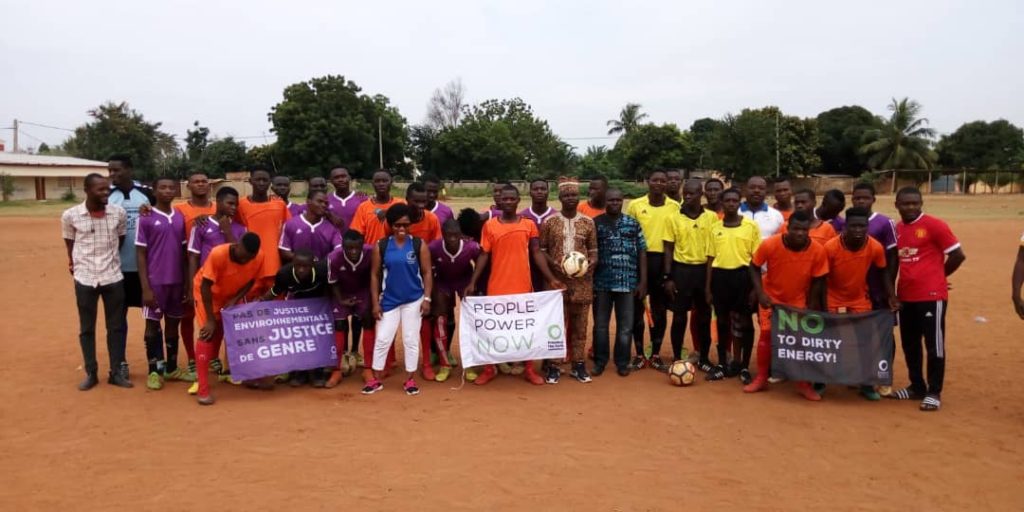No Nuclear Subs Rally 5:30 Friday 24 Sept
Concerned about the proposed Nuclear Submarines?
Or want to know more about the problems?
Come along to the rally to Protest: join us, this Friday at 5:30.


from Sara Shaw Climate Justice & Energy International Programme Co-coordinator, FoE International:

The week of 20-27 September saw the biggest global mobilisation to highlight the climate emergency in history with over 7 million people participating in global climate strikes and actions! Friends of the Earth groups around the world were part of this movement – supporting youth and calling for climate justice for those on the front lines of climate change, dirty energy and false solutions. Here is our round up of how you all took part.
 In APAC, FoE groups joined the strikes in Malaysia, Sri Lanka, Australia, Timor-Leste, South Korea, Philippines, Bangladesh, Japan and Indonesia. FoE Malaysia put together a fabulous round up of photos from around the APAC region.
In APAC, FoE groups joined the strikes in Malaysia, Sri Lanka, Australia, Timor-Leste, South Korea, Philippines, Bangladesh, Japan and Indonesia. FoE Malaysia put together a fabulous round up of photos from around the APAC region.
Europe saw some of the biggest climate mobilisations ever! 1.4 million people in Germany alone. FoEE did a fabulous round up blog, and a flickr album. Here are some of the climate strikes and actions FoE and Young FoEE groups joined across Europe:England, Scotland, Wales, Germany, Cyprus, Belgium, Spain, Denmark, Hungary, Malta, the Netherlands, Russia, Austria, Macedonia, Sweden, Croatia, Bosnia.

Africa saw actions across the continent with FoE groups participating in Nigeria, South Africa, Ghana, Tanzania and Togo. FoE Togo organised an inspiring football match action with local children. Young activists from Mozambique took part in the strikes in the UK and spoke powerfully on climate justice.
FoE Africa also participated in the UN Secretary General Climate Action Summit in New York. On 20 September over 300,000 people mobilized ahead of this Summit. Philip Jakpor from Environmental Rights Action/FoE Nigeria and Sostine Namanya from NAPE/FoE Uganda were in New York for FoEI and part of themobilisation. They also took part in a Southern Voices side event, an action against the Oil and Gas industry with allies and secured some fantastic media coverage.
The US also witnessed huge marches across many cities that FoE US joined. And FoE US helped organize a shutdown of Washington DC to demand action on the climate crisis.

In ATALC there were actions in many cities – and FoE Paraguay, Colombiaand El Salvador were out on the streets.
FoEI also published a blog and a Real World Radio interview for the climate strikes. We also took a solidarity picture when we met together in Utrecht.
Now we have to work hard so that these amazing mobilisations and movements deliver real change and climate justice for people hit hardest by the climate and energy crisis. FoEI’s next big climate moment will be in Chile for the COP, so watch this space.
People Power Now!
In solidarity
Sara, dipti & FoEI Comms
Sara Shaw
Climate Justice & Energy International Programme Co-coordinator
Friends of the Earth International

The federal election will be held on May 18. With climate change already bearing down on us, a recent decision by the government of Scott Morrison to sign off on Commonwealth approvals for the Adani Carmichael coal mine, and a robust debate about energy and renewables, there is no doubt that this will be the #climateelection.
Elections are a time to remind all parties that they need to deliver solid action on climate change and the environment.
The following are our key policy proposals for the 2019 federal election.

Climate science makes it abundantly clear that if we want to have a hope of avoiding dangerous climate change we must stop digging up fossil fuels.
Parties must:
 The time for coal is over. We need to transform our economy. We need to take everyone with us – this means supporting sectors and communities which will be on the frontline of structural change.
The time for coal is over. We need to transform our economy. We need to take everyone with us – this means supporting sectors and communities which will be on the frontline of structural change.
At the federal level, this includes the need to:
 We are already locked into unavoidable climate change. Governments must help human and natural communities to adapt and thrive in the conditions we will face in coming decades. In the short term, this should include:
We are already locked into unavoidable climate change. Governments must help human and natural communities to adapt and thrive in the conditions we will face in coming decades. In the short term, this should include:
Australia desperately needs green transport infrastructure and services:
On a per capita basis, Australia radically over consumes and over pollutes. We must accept the need to live within the limits of the planet. In the short term, we must:
Check the work of our national project Tipping Point.
Tipping Point is working to help build a people-powered movement which can take sustained, bold, and creative action that will drive the social and political change our climate so desperately needs.
Climate strike
May 3 #ClimateElection National Day of Action – students from around the country will be striking from school and protesting outside Federal MP offices. They are inviting all of us to join them.


Authorised by Cam Walker, Friends of the Earth, 312 Smith St, Collingwood.
Whilst you are here, please make a tax deductible donation. Friends of the Earth relies on donations from people like you to keep running campaigns for social and environmental justice.
Whether it be land or in the water, this May it’s time to show you are willing to do what it takes to protect the Great Australian Bight from risky deep sea oil drilling.
Surfrider Foundation Australia are championing paddle outs across the country for the #fightforthebight and the Adelaide event is being combined with Hands Across the Sand.
Last year over 20 communities across Australia held Hands Across the Sand events. So far this year thousands if people have paddled out from beaches across the country. People like are putting their bodies into the first against proposed oil drilling in the Great Australian Bight.
May 5th will be just days before Norwegian mining company, Equinor’s, AGM, as well as our own Federal Election. It’s a perfect time to show just how powerful the community opposition to this project is.
The strength of the Great Australian Bight Alliance is growing. Will you be part of this incredible movement to protect our coast? .
Now is the time to have your voice heard.
Bring surfboards, bodyboards, SUPs, kayaks, surf skis and other personal watercraft to peacefully #fightforthebight. Bring signs and banners and come enjoy the day.
Hosted by
Community
Authorised by P. Owen The Wilderness Society South Australia, 7/118 King William St Adelaide 5000